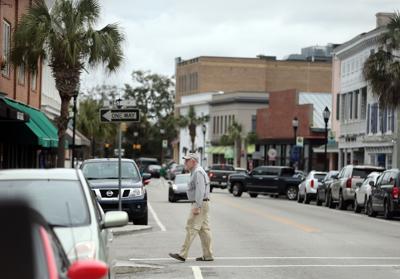The Beaufort Regional Chamber of Commerce is spinning off its tourism promotion duties into a new group, a move that could become widespread among South Carolina business organizations, depending on how the state Supreme Court weighs in on a long-awaited case.
The decision means the Beaufort Chamber, which represents business interests in Beaufort County, the city of Beaufort and the town of Port Royal, will effectively separate public funding it receives for tourism promotion from the group's function as a political advocate for the business community. Cliff Mrkvicka, chairman of the chamber's board, announced the move in an email last week.
Mrkvicka told The Post and Courier on Monday that the separation means the chamber will no longer have to worry about impacting the tourism program as it advocates for specific policies with local governments.
"We want to be a strong advocate, but we've been cautious ... you have to be careful not to make enemies," he said.
In metropolitan areas like Columbia and Charleston, chambers of commerce are separate from conventions and visitors bureaus, which solely exist to encourage tourism.
But in Hilton Head and Myrtle Beach, those two groups are blended together, effectively mixing a publicly funded program with privately funded advocacy that seeks to shape policy.
That arrangement has led to questions over whether mixed groups, which can receive millions in public money annually, should be subject to regulations like the state's Freedom of Information Act. That question is undecided, as the S.C. Supreme Court is still mulling whether nonprofits should be subject to disclosure laws.
In oral arguments in October, Justice John Cannon Few suggested that separating tourism promotion into a different organization could solve concerns over FOIA being used to probe a chamber's private political activity.
"Any organization in the state could, if they chose to, separate that out as a separate entity, separate out their existing, ongoing tourist promotion program as a separate entity, so that they could comply with FOIA with regard to these public funds, and not be subject to FOIA with regard to their own private activities," Few said.
But the FOIA case was "absolutely not the driver" in the Beaufort chamber's decision to create a new CVB, Mrkvicka said.
During the fiscal year ending June 30, 2016, the Beaufort chamber received $727,983 in government grants, or 55 percent of its total revenue, according to its tax return. The filing, submitted in August 2017, was the most recent available online.
Mrkvicka said that the Beaufort chamber's tourism advisory board will become the board of the new CVB. The groups will share some resources, like accounting services and office space, during the transition.







